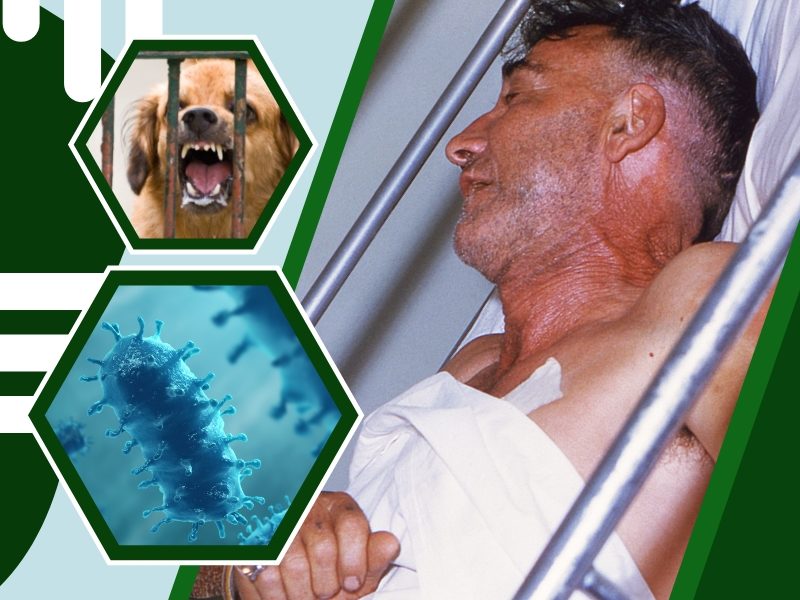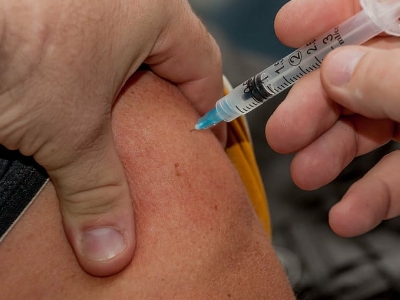Causes of Rabies

The rabies virus spreads to humans through the saliva of infected animals. Most often, the virus is transmitted through bites.
Rabies is most often transmitted by bats, coyotes, foxes, raccoons, and skunks in the United States. Most rabies cases in developing countries are caused by stray dogs.
A person with rabies will almost always die once they show signs and symptoms of the disease. For this reason, anyone who may have a risk of contracting rabies should receive rabies vaccinations for protection.
Causes of Rabies
The rabies virus causes a rabies infection. The virus can spread via the saliva of infected animals which can spread the virus by biting another animal or a person.
In rare cases, rabies can be spread when infected saliva gets into an open wound or the mucous membranes, such as the eyes or mouth. This could happen if an infected animal licked an open cut on your skin.
Signs and Symptoms of Rabies

The first signs and symptoms of rabies may be very similar to those of the flu and may last for days. Later signs and symptoms may include:
- Vomiting
- Fever
- Headache
- Nausea
- Agitation
- Hyperactivity
- Anxiety
- Confusion
- Difficulty swallowing
- Excessive salivation
- Insomnia
- Partial paralysis
- Fear brought on by attempts to drink fluids because of difficulty swallowing water
Diagnosis of Rabies
There is no way to know whether the animal has the rabies infection at the time a potentially rabid animal bites you. Also, it is common not to find bite marks. Your doctor may recommend several tests to detect the rabies virus. However, they may need to be repeated later to confirm whether you are carrying the virus.
Your doctor will likely recommend treatment as soon as possible to prevent the rabies virus from infecting your body if there’s a chance you may have been exposed to the rabies virus.

Treatment for Rabies
If you have been bitten by an animal that is known to have rabies, you will receive shots to prevent the rabies virus from infecting you. If the animal that bit you can’t be found, it may be safest to assume that the animal has rabies. However, this will depend on several factors, such as the type of animal and the situation in which the bite occurred.
Rabies shots include:
- A fast-acting shot (rabies immune globulin) to prevent the virus from infecting you. This is given if you haven’t had the rabies vaccine.
- A series of rabies vaccinations to help your body learn to identify and fight the rabies virus. If you haven’t previously had the rabies vaccines, you’ll receive four injections over 14 days. If you have had the rabies vaccine, you’ll have two injections over the first three days.
If rabies is left untreated, it is almost always fatal. When someone with rabies starts experiencing symptoms, they usually do not survive. This is why it is very essential to seek medical attention right away following an animal bite, especially if the bite is from a wild animal.



